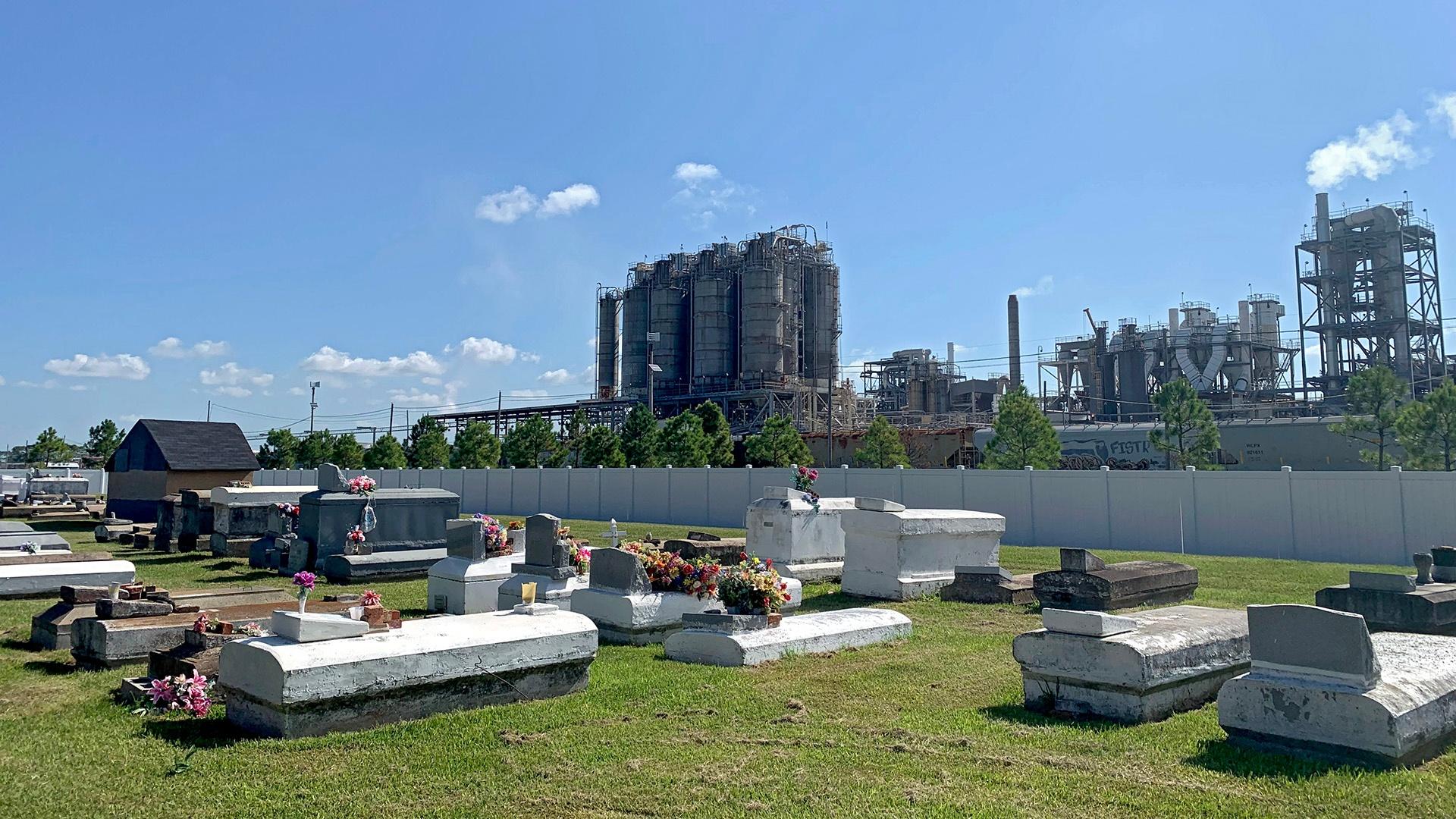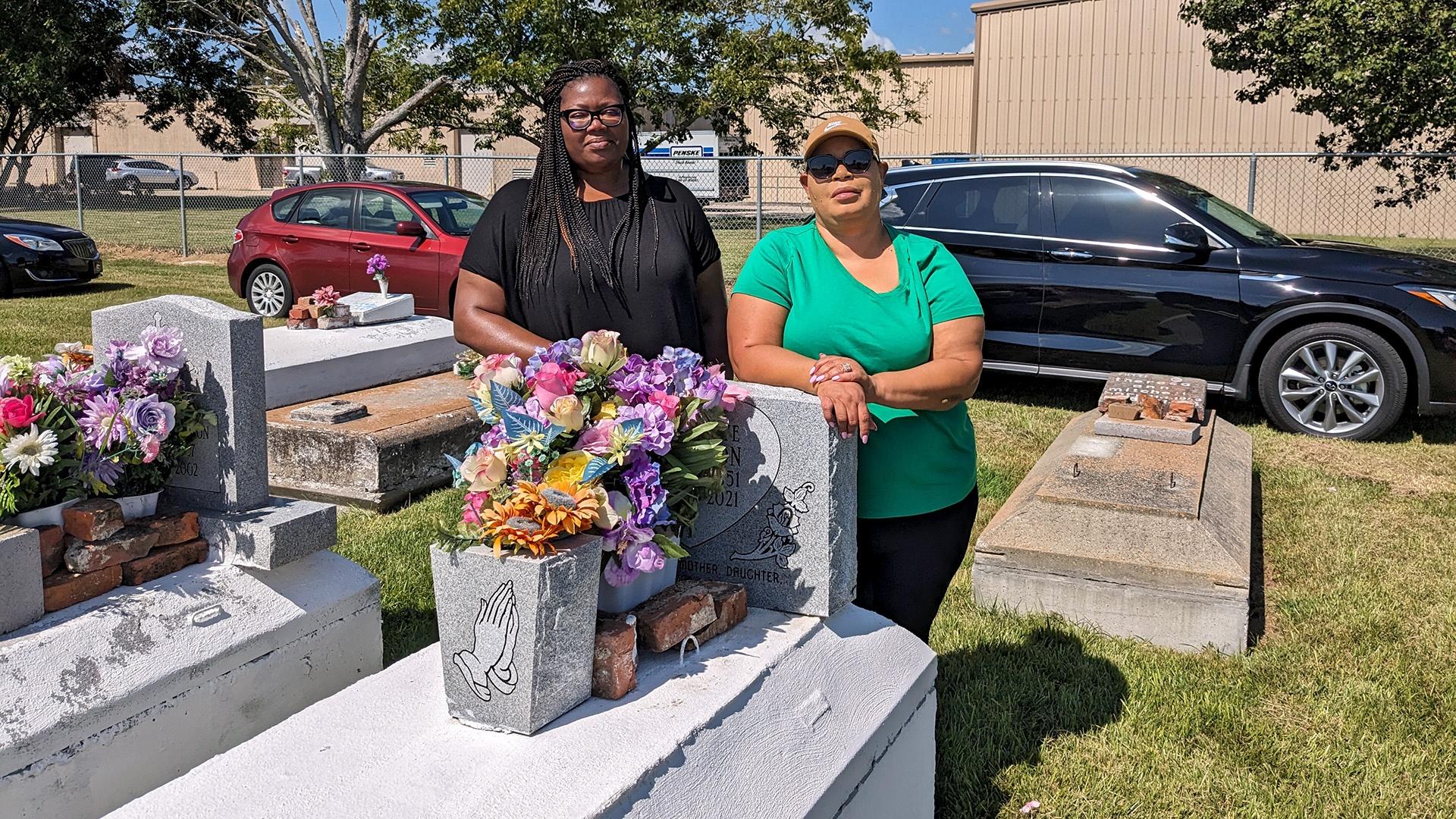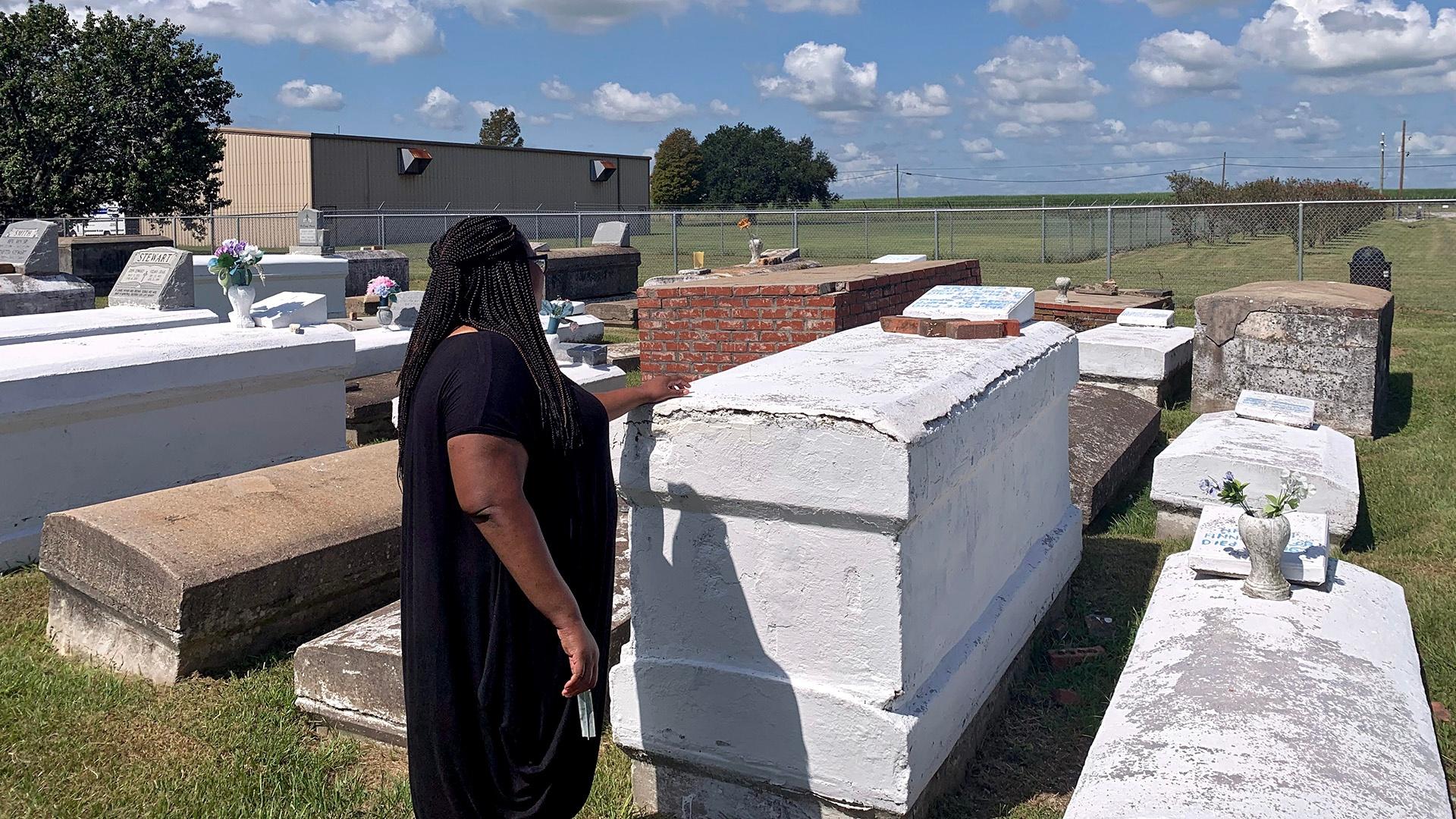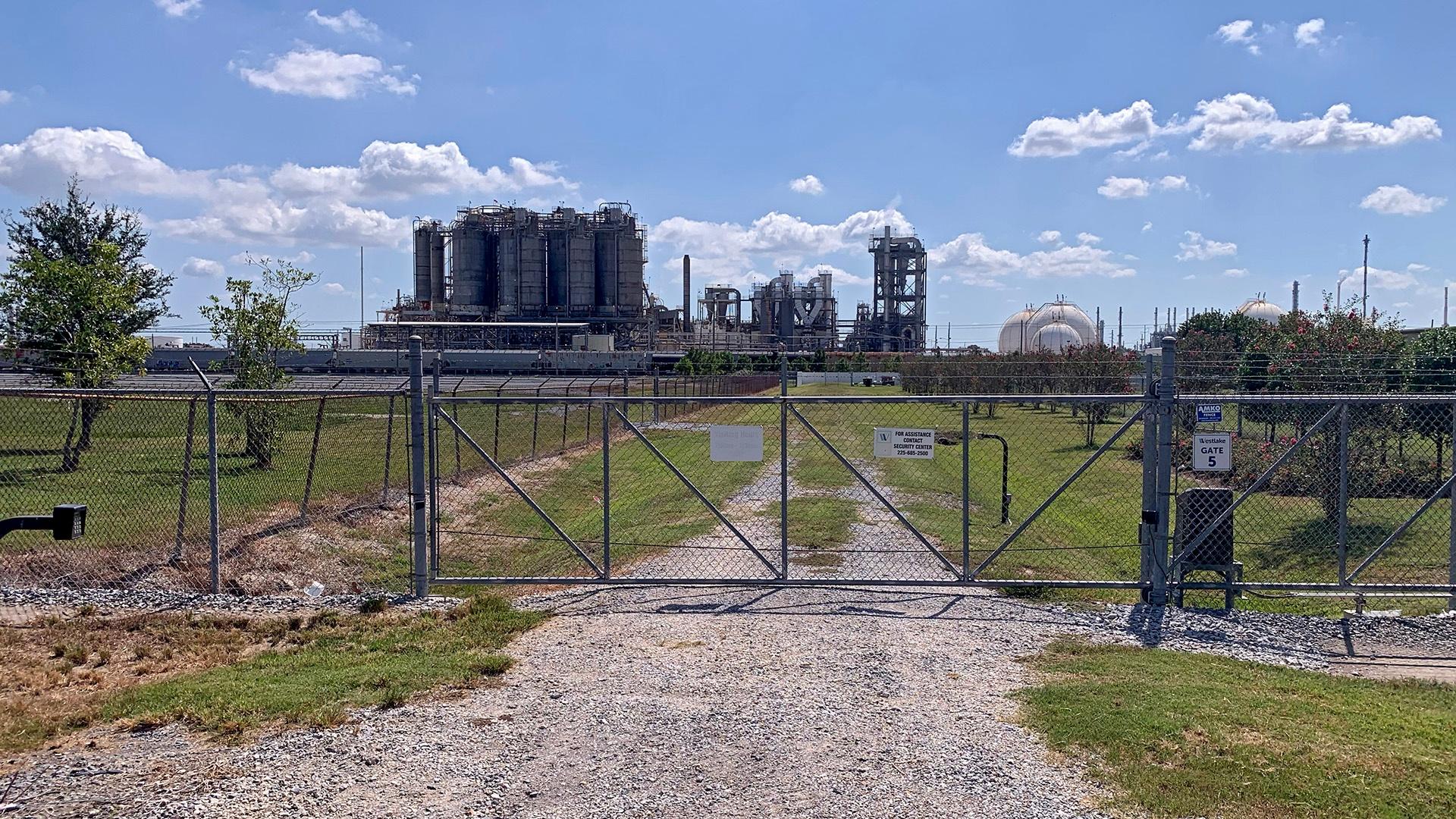Standing in the Revilletown, cemetery in Plaquemine, Louisiana, under the blazing September sun, Marla Dickerson and her sister, Cheryl Batiste, place new flowers in the urn next to their mother’s grave. The graveyard is neat and tidy, and it’s small — about one-quarter acre in size.
In the South, cemeteries are often more than just burial grounds. They’re active places, full of life. Traditions like “Decoration Day,” where families gather to clean and decorate the graves of their loved ones, still hold strong. And for those with connections to Revilletown — a small, Black community in rural Louisiana — the cemetery was a place of refuge.
Dickerson wipes beads of sweat from her forehead and places her hand on the above-ground tomb. As a child, she used to run around and play here. Now, as she looks over the graves, she’s overcome with emotion as she remembers some of the stories her grandmother used to tell her.
“She and her brother would walk to school, and the white kids would pass by on the bus, and spit at them and throw things at them. And her brother would stop here to eat his lunch because he didn’t want to have to deal with everything going on,” Dickerson said, pausing to catch her breath and steel herself before continuing.
“So we would have walks and we would come here and we would just sit down and she would point out where all the family members were buried. So it wasn't ever a sad occasion, it was just something that we did to celebrate our family.”
As she talks, Dickerson has to speak loudly over the constant drone of the chemical plant right on the other side of the fence. Giant, steel storage tanks and smokestacks with steam billowing out of them tower over the graves.
“There is nothing peaceful about being near a chemical company,” Dickerson said.
Generations of Dickerson’s family are buried in the Revilletown cemetery, which is now all that remains of the small town she grew up in — until dangerous levels of toxic pollution pumped into the air, soil, and water by the chemical plants forced residents to leave.
Now, even the bones of Revilletown are in jeopardy, as the chemical companies that have operated the plants next door have tried claiming ownership over the graveyard throughout the years.
But residents aren’t letting their former home become a full specter without a fight.







